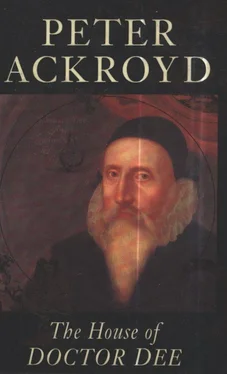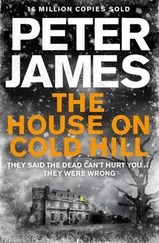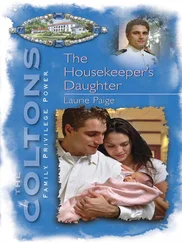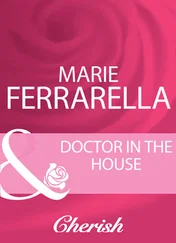Peter Ackroyd - The house of Doctor Dee
Здесь есть возможность читать онлайн «Peter Ackroyd - The house of Doctor Dee» весь текст электронной книги совершенно бесплатно (целиком полную версию без сокращений). В некоторых случаях можно слушать аудио, скачать через торрент в формате fb2 и присутствует краткое содержание. Город: London, Год выпуска: 1993, ISBN: 1993, Жанр: Историческая проза, на английском языке. Описание произведения, (предисловие) а так же отзывы посетителей доступны на портале библиотеки ЛибКат.
- Название:The house of Doctor Dee
- Автор:
- Жанр:
- Год:1993
- Город:London
- ISBN:9780241125007
- Рейтинг книги:5 / 5. Голосов: 1
-
Избранное:Добавить в избранное
- Отзывы:
-
Ваша оценка:
- 100
- 1
- 2
- 3
- 4
- 5
The house of Doctor Dee: краткое содержание, описание и аннотация
Предлагаем к чтению аннотацию, описание, краткое содержание или предисловие (зависит от того, что написал сам автор книги «The house of Doctor Dee»). Если вы не нашли необходимую информацию о книге — напишите в комментариях, мы постараемся отыскать её.
The house of Doctor Dee — читать онлайн бесплатно полную книгу (весь текст) целиком
Ниже представлен текст книги, разбитый по страницам. Система сохранения места последней прочитанной страницы, позволяет с удобством читать онлайн бесплатно книгу «The house of Doctor Dee», без необходимости каждый раз заново искать на чём Вы остановились. Поставьте закладку, и сможете в любой момент перейти на страницу, на которой закончили чтение.
Интервал:
Закладка:
In fact, to my surprise, there were two books devoted to him in an alcove labelled, in old-fashioned Gothic script, 'The History of English Science'. The most recent was John Dee's Natural Philosophy: Between Science and Religion by Nicholas Clulee, and as soon as I took it down from the shelf I realized that this was not the history of a black magician; there was a bibliography of thirty-four pages and it was clear, even from my brief examination of the chapters, that this was a serious account of mathematics, of astronomy, and of philosophy. Beside this volume was another, John Dee: The World of an Elizabethan Magus by Peter French; and when I took it down, he stared at me. He was depicted on the cover, and in my sudden fright I almost dropped the book. I had not expected to see him so soon, and it took me a moment before I could look at the painting again. The eyes were slightly too large, as if the artist had not known how to capture their brightness, and there was something about his expression that disquieted me. His capacious forehead was framed by a black skull cap; he had a medium-length grey beard, which spilled over his white ruff, and he seemed to be wearing a black gown. And yet what was wrong with his expression? He looked both menacing and confidential, as if he harboured some secret of great importance which he might or might not reveal to me. But his eyes were so wide, and so steady, that I could not help but meet his gaze.
I carried these books back to Cloak Lane, and placed them on the table beneath the window. I suppose that this was for me the strangest part of all — to leave these books about Doctor Dee in the same room where he had once walked. I felt as if I were some magician, trying to conjure him into existence from the grave. And then suddenly it occurred to me that he might have died in this house. I could have opened one of the books to discover the truth of this, but instead I turned and left the room.
I opened the front door and went out into the garden. It was a humid summer evening after another humid day, and I was peculiarly tired and nerveless. I do not think I would have noticed even if the spectre of John Dee had suddenly risen up before me: I felt too much of a ghost myself. I walked slowly over to the side of the garden, where a narrow passage still filled with weeds separated my house from a high public wall. I had never properly examined this narrow space, largely because it was filled with the kind of stray profuse vegetation which might harbour living things. But I walked through it now, and ran my hand across the old wall; it was cold, and some of its crumbling texture adhered to my fingers. I licked it, and it tasted like ancient salt.
It was then I noticed how, near the level of the ground, large black marks were painted across the stone; at least that was how it seemed to me for a moment, but when I knelt down I realized that these stains had deeply impregnated the stone itself. They looked like scorch marks. I turned to the wall of the house, and patches of blackened stone were also visible. Something had burned here. Or the house itself had been touched by fire. And if the original upper storeys of the house had been destroyed, it would explain the eighteenth- and nineteenth-century additions. It could not have happened in the Great Fire, since Clerkenwell was not part of the area of burning London. No, this had occurred at some earlier time.
I looked up at the sky for a moment, shielding my eyes from its brightness, and then without thought I lifted my shirt, pulled down my trousers, squatted upon the ground, and defecated. I was so surprised by what I had done that I rose hastily to my feet and stood there for a minute or so, slowly rocking backwards and forwards. Was it in shit like this that the homunculus had grown? I could have stayed there for ever, looking down at the ground, but I was disturbed by a noise behind me; it sounded like laughter, but then turned into a sigh. Had someone been watching me all this time? I pulled up my trousers and ran back into the house.
*
John Dee was described by Aubrey as 'one of the ornaments of his Age'; Queen Elizabeth called him 'hyr philosopher', and another contemporary said that he was 'the prince of Mathematicians of this age'. Peter French, in his biography, declared him to be 'Elizabethan England's greatest magus'. So much I recognized at once. But then, over the next few days, I began to be surprised by this man who had once inhabited my house; he was an adept in mathematics and astronomy, in geography and navigation, in antiquarian studies and natural philosophy, in astrology and the mechanical sciences, in magic and theology. I consulted other books which chronicled his development: Frances Yates's Giordano Bruno and the Hermetic Tradition, Astronomical Thought in Renaissance England by F.R. Johnson, and E.G.R. Taylor's Tudor Geography, 1485–1583. All these accounts had very little to do with his reputation as a conjuror or a black magician and, as I read various alternative descriptions in other texts, the only familiar image was the face I now knew so well. Every time I entered the ground-floor room, with its thick stone walls and narrow windows, I took up the book and tried to return his steady gaze.
In Frances Yates's history Doctor Dee was described as a 'Renaissance Magus' who continued in England the same hermetic tradition that encompassed Ficino, Pico della Mirandola and Giordano Bruno. But in his study Nicholas Clulee disagreed, suggesting that a large part of Doctor Dee's inheritance came from medieval sources and particularly from the writings and experiments of Roger Bacon. Where Yates tended to see Doctor Dee as the steady exponent of a European philosophy, Clulee described him as a more eclectic and empirical figure. Yet all my books conveyed the same central theme — that he stood upon that ground where the concerns of his age met and could not easily be distinguished. There was another fact which seemed to be of equal significance. John Dee himself had, in one way or another, belonged to every time. He was in part a medievalist, expounding ancient formulae, but he was also an active agent in contemporary natural philosophy; he was an antiquarian, who speculated about the origins of Britain and the presence of ancient cities beneath the earth, but he was also one of those who anticipated a future scientific revolution with his experiments in mechanics; he was an alchemist and astrologer who scrutinized the spiritual world, but he was also a geographer who plotted navigation charts for Elizabethan explorers. He was everywhere at once and, as I walked about his old house, I had the sense that somehow he had conquered time.
Through these books, too, I came to understand the alchemy in which John Dee placed his faith. He believed the world to be imbued with spiritual properties — with 'signatures' and 'correspondences' that reveal its true nature. The seed of the aconite is used to cure optical disorders because it is in the shape of an eyelid; the breed of dog called the Bedlington terrier resembles a lamb and is thus the most nervous of its species. Each material thing is the visible home of a universal power, or congregation of powers, and it was the task of the enlightened philosopher and alchemist to see these true constituents. He understood from the very successful medicine of Paracelsus, for example, how the stars, the plants of the earth and the human body might be fruitfully combined to effect cures. But there was another truth: God is within man, according to John Dee, and he who understands himself understands the universe. The alchemist finds the perfection or pure will within all materials; he knows that salt is desire, mercury is turbulence, sulphur is anguish. When the alchemist finds that will and idea within the material form, then he is able to bend it to his own will. For this was the truth which John Dee maintained all his life — there is nothing in heaven and earth which is not also in man, and he quoted Paracelsus to the effect that 'the human body is vapour materialized by sunshine, mixed with the life of the stars'. When the astrologer sees the sun rise, according to Dee, the sun within his own self rises in joy. This is the true gold of wisdom.
Читать дальшеИнтервал:
Закладка:
Похожие книги на «The house of Doctor Dee»
Представляем Вашему вниманию похожие книги на «The house of Doctor Dee» списком для выбора. Мы отобрали схожую по названию и смыслу литературу в надежде предоставить читателям больше вариантов отыскать новые, интересные, ещё непрочитанные произведения.
Обсуждение, отзывы о книге «The house of Doctor Dee» и просто собственные мнения читателей. Оставьте ваши комментарии, напишите, что Вы думаете о произведении, его смысле или главных героях. Укажите что конкретно понравилось, а что нет, и почему Вы так считаете.












